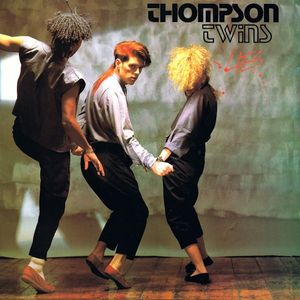Background and Creation
https://www.youtube.com/watch?v=MNeVjVu9O6w
https://en.wikipedia.org/wiki/Lies_(Thompson_Twins_song)
The Thompson Twins emerged during the height of the New Wave movement, blending electronic beats with socially conscious lyrics. “Lies, Lies” stood out for its sarcastic tone and rhythmic energy, capturing the frustration of living in a world saturated with falsehoods.
Themes and Interpretation
- Deception and Betrayal: The song’s repeated emphasis on “lies” underscores the emotional toll of dishonesty.
- Power and Control: Beyond romantic relationships, the lyrics hint at societal manipulation—media spin, political propaganda, and the erosion of trust.
- Irony and Cynicism: The upbeat tempo contrasts with the bitter message, creating a sense of irony that amplifies its Impact.
Musical Style
“Lies, Lies” is quintessential 1980s synth-pop, featuring driving electronic rhythms, layered vocals, and a danceable beat. This juxtaposition of catchy music with serious subject matter was a hallmark of the era.
Cultural Impact
The song resonated with audiences during a time of political tension and media saturation, and its message remains relevant today, helping readers understand its lasting cultural significance.
Why It Still Matters
In an era dominated by social media and polarized narratives, “Lies, Lies” feels eerily prescient. Its critique of dishonesty and manipulation continues to strike a chord, reminding listeners to question appearances and seek truth.
Closing Thought:
“Lies, Lies” isn’t just a catchy pop tune—it’s a timeless warning about the corrosive power of deception, whether in love or society at large.
Inspiration:
The inspiration behind “Lies” by the Thompson Twins was initially playful, aiming for a wacky, irreverent tone with a chorus mimicking a schoolyard taunt. Still, it evolved into a reflection on media manipulation and societal control, giving it a more profound, lasting significance beyond its playful origins.
However, Bailey realized the song carried broader implications, reflecting both personal dishonesty and systemic deception, which gives it a layered relevance beyond its playful origins.
How did the public react to ‘Lies’?
The public reaction to “Lies” by the Thompson Twins was generally positive, especially in the United States:
- Chart Performance:
o Peaked at #30 on the Billboard Hot 100 in spring 1983.
o Hit #1 on the U.S. Dance Club Songs chart for two weeks in January 1983.
o In the UK, it was less successful, reaching #67 on the Singles Chart.
o Also charted internationally, including #6 in New Zealand and #27 in Australia.
- Audience Appeal:
The song’s sarcastic tone and catchy synth-pop beat made it a favorite in clubs and on MTV, where its quirky music video received significant airplay. Its repetitive, chant-like chorus (“lies, lies, lies”) was easy to remember, helping it become a dance-floor staple. - Critical Reception:
Critics noted its playful yet biting commentary on dishonesty, delivered with an upbeat, ironic style. Over time, listeners interpreted the song not only as about personal betrayal but also as about media manipulation and societal falsehoods, giving it a deeper resonance.
Notable Live Performances
- Into the Gap Live Tour (1984)
The Thompson Twins performed “Lies” during their Into the Gap tour, including shows in California. A recording from 30 September 1984 in California features “Lies” alongside hits like “Doctor! Doctor!”. - Del Mar Racetrack, USA (1984)
A live version of “Lies” from this concert was recently released on streaming platforms as part of Into the Gap Live (April 2025). This performance captures the band’s high-energy stage presence and their signature New Wave aesthetic. - Live in Liverpool
There’s also a recorded performance from Liverpool, showcasing the band’s popularity in the UK during the early 1980s.
Closing Paragraph:
“Lies” remains one of the Thompson Twins’ most memorable tracks—not just for its infectious synth-pop groove, but for its biting commentary on dishonesty and manipulation. What began as a playful, almost taunting refrain evolved into a song with layered meaning, resonating with listeners who recognized its relevance beyond romantic betrayal. Decades later, in an era dominated by misinformation and curated realities, its message feels more urgent than ever. The next time you hear that chant—“lies, lies, lies”—take a moment to reflect: how much of what we accept as appearances shapes truth, and how often do we ignore the signs of deception in our own lives?
